By Donna Schaper, Senior Minister at Judson Memorial Church, NYC
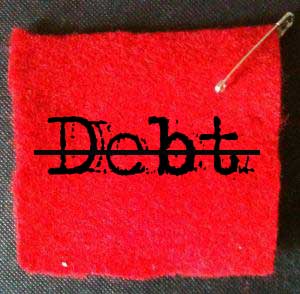 WHY A SHIFT?
WHY A SHIFT?
Faith Based Community organizing has a fine history—from Gamaliel through the Jeremiah Project, through Brooklyn United, on to PICO and more than I couldn’t possibly name or remember. Appreciation is the most appropriate attitude and stance. Appreciation can also deepen and lead to a shift in strategy, and that is what is happening now in many parts of the country.
The time famine has intensified for many clergy and for their dwindling congregations, making it imperative to switch direction. The old organizing model had churches bringing their internal parish strength to external community action. This model wrongly equated the strength of congregations with the “number” of people in the pews who could be convinced to hold a protest sign. Now, it is time for a model that embodies mutuality. We clergy and congregations need the community’s help. We need the community’s energy to assist parishes so that parishes may assist communities. We need the outer to touch the inner. That shift in direction is happening of necessity, due to the extraordinary pressures on parish clergy. It could also happen by design and improve us all. One Canadian minister said, “The churches saved the arts during the Middle Ages, today the arts need to save the churches.” This comment resembles the direction we might desire instead of rue.
I came to this realization slowly, with some resistance. I often felt “used” by the rent-a-collar approach of many community and labor organizations. I often felt I had something different to give than what they wanted. They wanted “my” people in their picket lines. They wanted numbers. I increasingly had decreasing numbers, especially of dedicated people, most of whom knew their own time famine, while working three jobs, raising children, and trying to keep their mortgage payments above water. I realized that to be of use I had to get the numbers of people up in “my” pews before I got them “up” in their picket lines.
Plus, what I really had to give was not numbers but spiritual support. Organizers seemed to feel so burnt out, so despairing, so uselessly utilitarian. They wanted something from me and my people that we couldn’t give—when all the while, what we had in resources to combat despair, they ignored. They wanted a contractual arrangement, and what I had was covenantal. Now when organizers knock on my door to have yet another “one on one”, I tell them to come to church. I invite them to worship. I ask about the state of their soul. I don’t promise to produce numbers.
To explain this shift in direction, let me illustrate with a project that is coming out of Occupy Faith. We are developing a transitional project, one that goes internal and external dynamically, rather than going from one false polarity (inner to outer) to another (outer to inner). We want to change how congregations and community organizations get real power—a change which will help with the time famine and the housing famine and the hope famine. We are calling it a “Rolling Jubilee.”
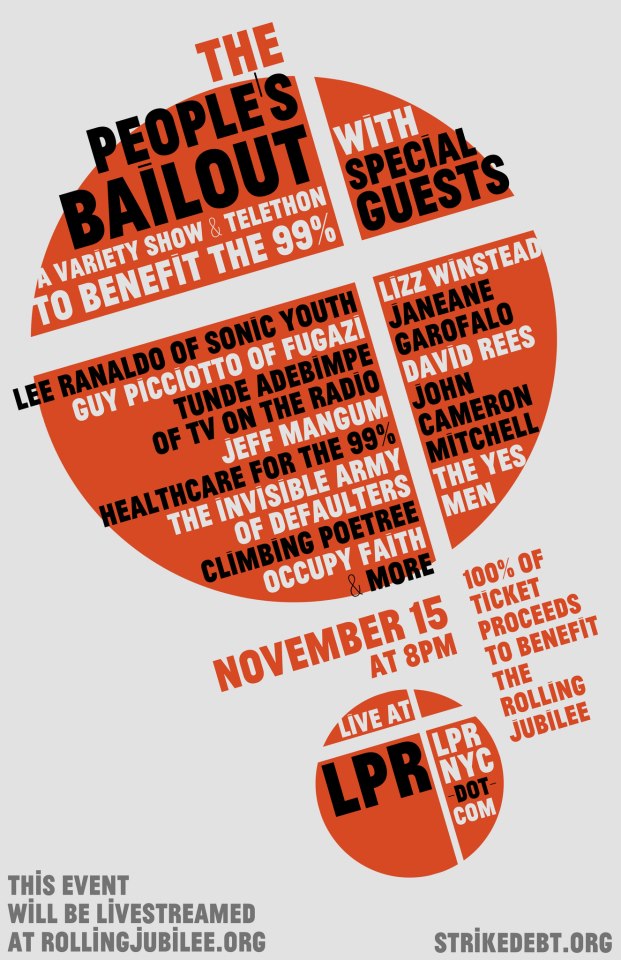 WHAT IS A ROLLING JUBILEE?
WHAT IS A ROLLING JUBILEE?
A jubilee is a biblical practice of cancellation of debt on behalf of just prosperity for all, including the soil. It is rest from making money and gaining power—on behalf of human community. It is a new kind of faith based community organization, in which we Roll the Biblical Jubilee, that automatic and normal forgiveness of debt, and in which faith based organizing returns to its base in faith. It doesn’t stop organizing so much as it deepens the reasons that we must organize. We turn toward the urgency of the suffering of our people, in order to release our great hope in each other and in biblical power. We start with questions.
Did you know that debt cancellation is the biblical norm, not exception? Does your faith feel fraudulent as you live in a political economy that enjoys debt and its abuse? Check out Deuteronomy 13, or 5; and Exodus 20, 21, or 23. Find out what Muslims and other interfaith partners think about debt. Or, listen to Jesus in Luke 7, 11, or 16; or Matthew 6 or 18. You will discover why you feel so much like a stranger in a strange land. From that alienation you will connect to others, many of whom feel similarly alienated. In your connection, power will emerge.
The rolling jubilee is a campaign that buys debt for pennies on the dollar and does away with it. It is a release from the shame of being in debt. Many are ashamed of their student debt. Even more are ashamed that their mortgages are under water or that they have credit card debt they can’t possibly pay. What people don’t realize is that many national banks (as opposed to some local banks and credit unions) make out well by this shame. They make it look like it is our “fault” that we aren’t rich or famous, all the while gaining interest on the government’s debt and our personal debt, while wagging their fingers in absurd levels of shame and blame.
The time famine comes from internalized capitalism. We’ve simply been doing what “everybody does,” valuing what “everybody values.” Instead of blame, forgiveness is a good place to start. Way too much of faith based community organizing has an ought to attached to it. Rolling the jubilee is a may. You may forgive yourself for internalizing capitalism. This spiritual repentance becomes a permission (out of which grows an internalized ought or commitment) to enter our difficulty with hope and conviction, not with shame or blame.
New directions for faith based organizing fundamentally disavow the prioritization of coming to a meeting, of “showing up”, of “being counted.” We hope most that our people will be relieved of shame on behalf of something like freedom. From that freedom we believe they will uproot internalized capitalism, first in their own souls, then in their congregational life, then in their communities. Few can afford to go to any more meetings or read any more emails or make any more phone calls. Internally “tilted” community organization does not require a lot of meetings that no one can manage to get to. They are richly democratic and open sourced. They involve the viral and the possible by asking us to engage our friends and families, not people we don’t know or can’t know.
Story telling is the essential and important first step. Tell your story of money, power, and debt. Tell your story of repentance too. Were you so ashamed that you lost your job that you didn’t tell anybody? Who are your people and what is the story of your people’s journey through the lands of money, debt, and power? Do you have student debt? Do you have despair about what it bought you or can buy you? Are you underwater in your mortgage? Have you found a way out of shame about not being rich, in a land where that is the 11th commandment?
Tell your story, whenever, wherever, however you can. Engage the people around you. Listen to their story. Think of the popular NPR ‘Story Corps” and you will see where this is going. A national web site—a People’s Investigation of Money, Debt and Power—is now up.
While telling stories, don’t ask your faith leader to attend another meeting. Ask him or her to lead storytelling in your congregation and to link your stories to others. We imagine a great consciousness raising experience, where aha moments go viral. “I thought I was the only one in this congregation with crushing debt.” Aha, I am not. “I thought I was the only person who thought I was bad for not being successful.” Aha, I am not. “I thought I was the only person who knew that the system was rigged and that money in politics had destroyed the American dream and the dreamers.”
Of course, storytelling alone is not going to create the kind of change we seek, but it’s a good place to start—and it will reframe how we gather. Sure, we will still have to meet, put feet to the ground, and do the hard work of organizing. But because of this focus on spiritual need and storytelling… because of a reframed theological and personal understanding of the “why”… and because of new strategies to attend to people’s busy, crowded, and exhausted lives… this kind of organizing, we hope, will be life and energy-giving.
As a next step, begin an internal conversation about how your parish invests its monies. Divest from the big banks and put your congregation’s money into credit unions. Join up with others who will do the same—but don’t do so until the stories have seeped into the spirits of your people. Don’t just bring your pastors to meetings. Bring people’s stories to them and release the power of recognition. Raise the consciousness and combat the great loneliness of shaming stories and their multiplying impotence. Or create a micro-lending fund with some of your congregation’s monies. Experiment with local solutions to a stagnant, death relying economy. Or buy out some debt. Banks do it all the time—only they sell it and make more money on it. Why not take $5000, or raise $5000, and buy out some debt and cancel it?
What the national banks need to do is make money on our debt. What we need to do, then, is to make power on our resources: the (spiritual, storytelling, collective) power to change the very banking system and the economic structures that perpetuate unacceptable profit margins and the exploitation of the most vulnerable. It’s called Jubilee and it’s the way our Abrahamic forbears managed their fields. Faith based community organizations today have to tackle the enormous spiritual problems we face. Then we will be strong enough to take a crack at the material ones as well.
Join the Rolling Jubilee: A Bailout of the People by the People!
Check out A People’s Investigation: The Moral Crisis of Money, Debt, and Power
Get involved with Strike Debt and learn more
Join the launch of Jubilee on November 15 with “The People’s Bailout,” a variety show and telethon in New York City. Or watch the livestream.
Read more articles on Unbound about the Occupy Movement and about economic justice
Rev. Dr. Donna Schaper is Senior Minister at Judson Memorial Church and the author of 30 books, including a Forty Day Journey with Howard Thurman. She consults through “Bricks without Straw,” a service to help not for profits and congregations raise funds and energy to work in a spiritually rich way. She is also a good gardener and can make things grow. Her blog is called “Grace at Table.”

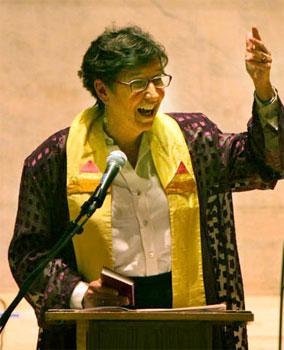


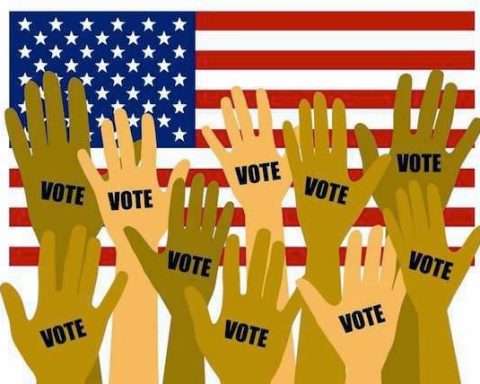
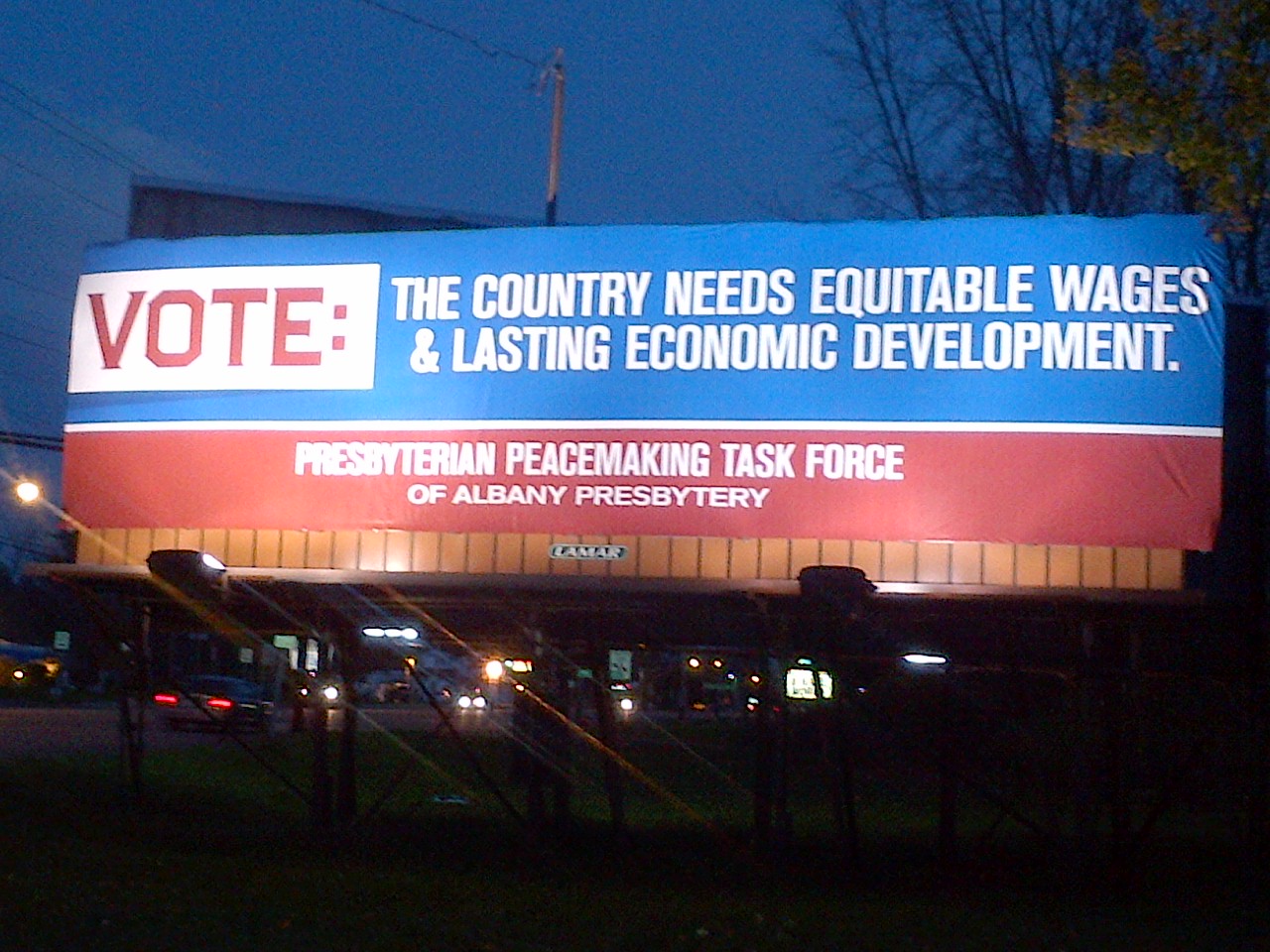
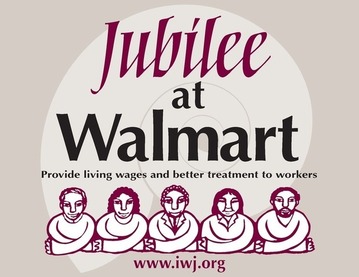
Unbound Social